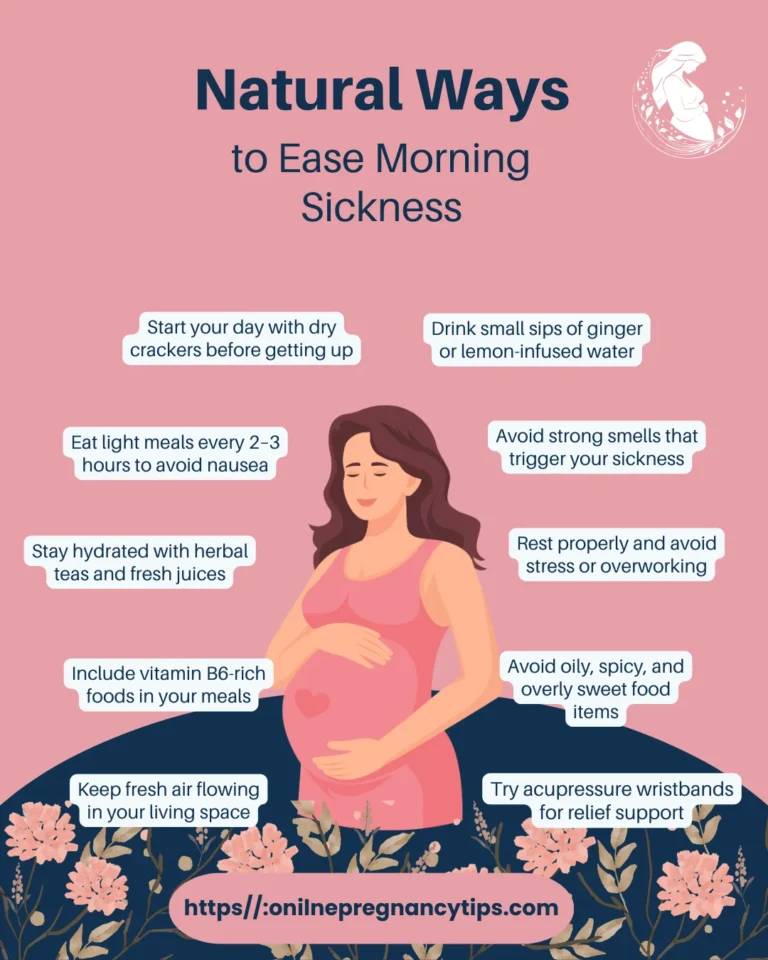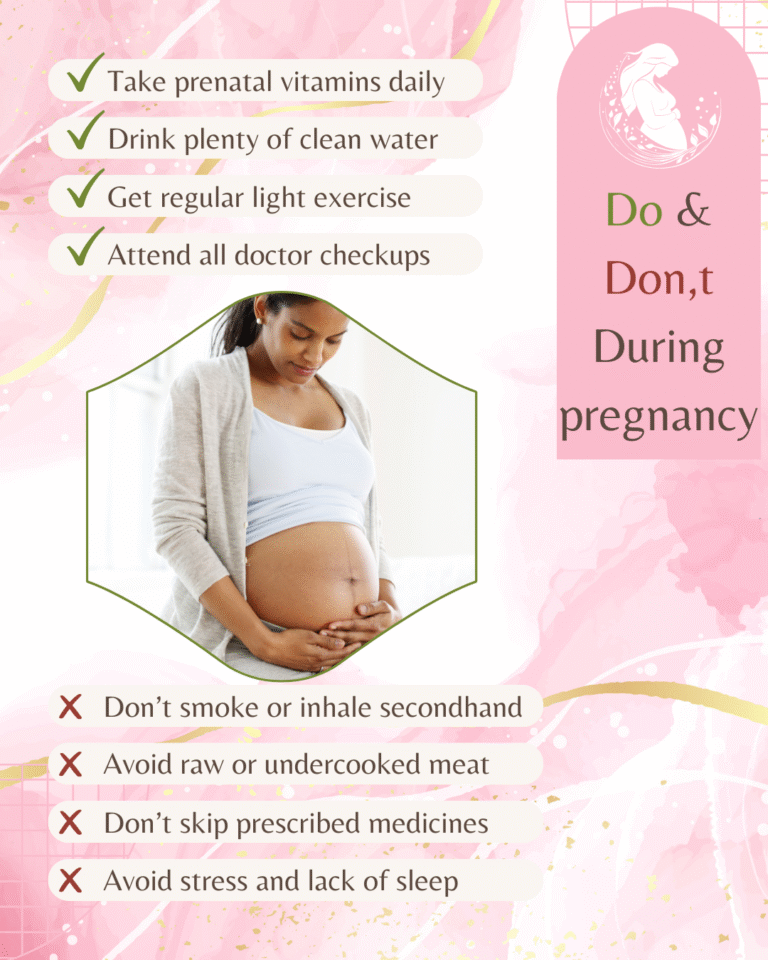

Do’s and Don’ts During Pregnancy: A Comprehensive Guide for Expecting Mothers

Do's and Don'ts During Pregnancy: A Comprehensive Guide for Expecting Mothers
Pregnancy is a transformative journey filled with anticipation, joy, and a fair share of questions. As an expecting mother, understanding the best practices and precautions is crucial for the well-being of both you and your baby. This guide provides detailed insights into the essential do’s and don’ts during pregnancy, helping you navigate this special time with confidence and care.
1. Introduction
Pregnancy is a period of significant physical and emotional changes. Making informed decisions about your health and lifestyle can positively impact your pregnancy experience and your baby’s development. This guide aims to provide evidence-based recommendations to support you throughout your pregnancy journey.
2. The Importance of Prenatal Care
Regular prenatal care is vital for monitoring the health of both mother and baby. It allows healthcare providers to:
Track fetal development
Identify and manage potential health issues
Provide guidance on nutrition, exercise, and lifestyle choices
Prepare for labor and delivery
Tip: Schedule your first prenatal visit as soon as you suspect you’re pregnant and maintain regular appointments throughout your pregnancy.
3. Essential Do's During Pregnancy
a. Take Prenatal Vitamins
Prenatal vitamins, especially those containing folic acid, iron, calcium, and DHA, support fetal development and prevent birth defects.
b. Maintain a Balanced Diet
Consume a variety of fruits, vegetables, whole grains, lean proteins, and healthy fats to provide essential nutrients for you and your baby.
c. Stay Hydrated
Aim to drink at least 8-10 glasses of water daily to support increased blood volume and amniotic fluid levels.
d. Engage in Regular Exercise
Moderate physical activity, such as walking or prenatal yoga, can alleviate pregnancy discomforts and improve overall well-being.
e. Get Adequate Rest
Prioritize sleep and rest to help your body cope with the physical demands of pregnancy.
f. Attend Prenatal Appointments
Regular check-ups allow for monitoring of your baby’s growth and timely identification of any concerns.
g. Educate Yourself
Consider attending childbirth and parenting classes to prepare for labor, delivery, and newborn care.
4. Critical Don'ts During Pregnancy
a. Avoid Alcohol and Tobacco
Consumption of alcohol and tobacco during pregnancy is linked to birth defects, developmental issues, and increased risk of miscarriage.
b. Limit Caffeine Intake
Excessive caffeine can lead to low birth weight and other complications. Limit intake to 200 mg per day.
c. Steer Clear of Certain Foods
Avoid raw or undercooked meats, unpasteurized dairy products, and certain seafood high in mercury to reduce the risk of foodborne illnesses.
d. Don’t Engage in High-Risk Activities
Activities with a high risk of falling or abdominal injury, such as contact sports or amusement park rides, should be avoided.
e. Avoid Exposure to Harmful Substances
Limit exposure to toxic substances, including certain cleaning agents and pesticides, which can be harmful during pregnancy.
5. Nutrition: What to Eat and What to Avoid
Recommended Foods:
Fruits and Vegetables: Provide essential vitamins and fiber.
Whole Grains: Offer sustained energy and important nutrients.
Lean Proteins: Support fetal growth and development.
Dairy Products: Supply calcium for bone development.
Foods to Avoid:
Raw or Undercooked Meats: Risk of bacterial infections.
Unpasteurized Dairy Products: Potential for listeria contamination.
High-Mercury Fish: Such as shark, swordfish, and king mackerel.
Note: Always consult with your healthcare provider regarding dietary choices during pregnancy.
6. Physical Activity and Rest
Engaging in regular, moderate exercise can:
Improve mood and energy levels
Reduce pregnancy discomforts
Promote better sleep
Recommended Activities:
Walking
Swimming
Prenatal yoga
Rest Tips:
Aim for 7-9 hours of sleep per night
Use pillows to support your body and alleviate discomfort
Practice relaxation techniques to improve sleep quality
7. Mental and Emotional Well-being
Pregnancy can bring about a range of emotions. It’s important to:
Communicate openly with your partner and support system
Seek professional help if experiencing anxiety or depression
Engage in stress-reducing activities like meditation or gentle exercise
Remember, taking care of your mental health is just as important as your physical health during pregnancy.
8. Common Myths and Misconceptions
Myth: You should eat for two.
Fact: While nutritional needs increase, it’s important to focus on nutrient-dense foods rather than doubling calorie intake.
Myth: Exercise can harm the baby.
Fact: Moderate exercise is beneficial and safe for most pregnant women.
Myth: You can’t dye your hair during pregnancy.
Fact: Most hair dyes are considered safe, but it’s advisable to consult with your healthcare provider.
9. Conclusion
Navigating pregnancy involves making informed choices to ensure the health and well-being of both mother and baby. By adhering to these do’s and don’ts, you can foster a positive pregnancy experience. Always consult with your healthcare provider for personalized advice and guidance throughout your pregnancy journey.





